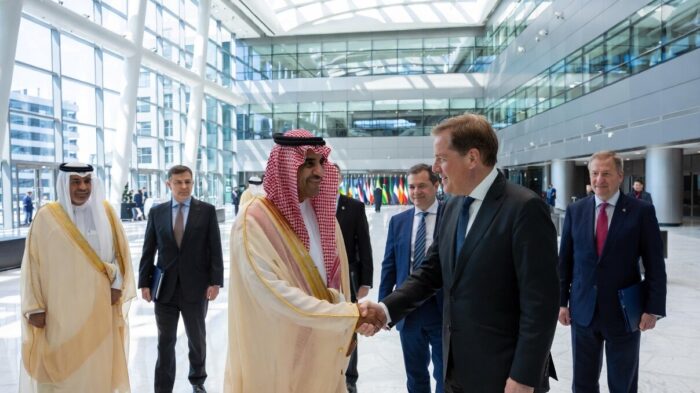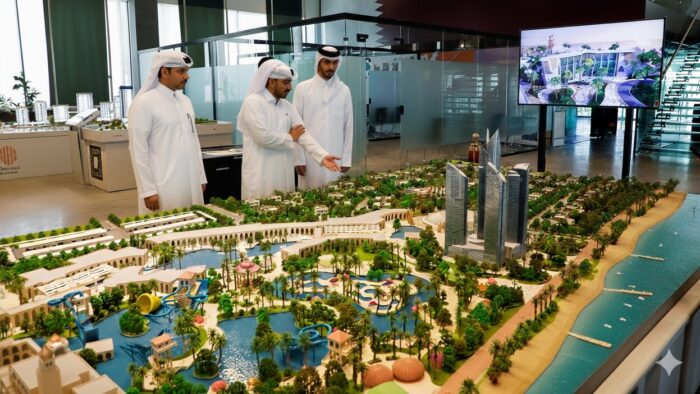The European Parliament is resisting Belgian corruption probes linked to Huawei influence operations. Euractiv reported that Parliament has refused to lift immunity for four MEPs six months after Belgian prosecutors requested waivers in a Chinese influence investigation, with Legal Affairs Committee members questioning prosecutor credibility in tense exchanges with federal prosecutor Ann Fransen. The article begins:
Three years after the Qatargate scandal shook the EU to its core, the European Parliament is quietly pushing back against Belgian authorities investigating allegations of wrongdoing among lawmakers. A Euractiv investigation has uncovered testy exchanges between members of Parliament’s Legal Affairs Committee and a senior Belgian prosecutor, signalling a showdown over the role Belgium’s judiciary should play in policing the EU’s democratic institutions. Though the clash surrounds the narrow question of whether to lift the immunity of MEPs suspected of wrongdoing, its outcome could carry profound implications for the oversight of Europe’s central bodies.
Key Points
- Parliament has resisted Belgian requests to lift immunities for four lawmakers six months after waivers were requested in a Huawei-related probe, with Legal Affairs Committee chair Ilhan Kyuchyuk writing that Belgium’s case was not substantiated sufficiently to reach a conclusion and demanding evidence details.
- Belgian federal prosecutor Ann Fransen warned in September that MEPs are meant only to verify whether an immunity request is politically motivated, not to demand access to evidence, arguing that such requests risk undermining investigative secrecy and the presumption of innocence.
- When news broke in March of a Belgian inquiry into Parliament tied to alleged Huawei influence operations, President Roberta Metsola denounced the prosecutor’s carelessness after an immunity request targeted an MEP who never attended the alleged event, openly questioning the credibility of Belgium’s judicial system.
- Some MEPs privately acknowledge immunity decisions have become bargaining chips in inter-group politics amid accusations of backroom maneuvers to shield the institution or certain political families from scrutiny, with resistance to the Huawei probe described as unprecedented by a committee member.
Qatar Influence Operations: Global Lobbying, Media Manipulation, and Academic Funding Networks
Qatar has systematically cultivated a multidimensional soft power portfolio spanning crisis diplomacy, elite education funding, media operations, and religious outreach to extend its influence far beyond what its small size would suggest. The nation has positioned itself as a leading mediator in international crises including Afghanistan, Lebanon, Yemen, and Gaza, leveraging diplomatic channels to build influence while hosting controversial figures. Qatar’s Media City project partners with international news agencies including Germany’s DPA, CNN, and Euronews to position Doha as a hub for international journalism, though critics warn this initiative serves to launder Qatar’s global image and exert behind-the-scenes influence over political debates in target countries.
In Europe, Qatar Charity has operated across more than 50 countries, providing substantial funding to 140 mosques, cultural centers, and schools associated with the Muslim Brotherhood in France, Germany, Bosnia, and Italy. This religious soft power extends to European Muslim Brotherhood youth organizations that sought millions for Brussels operations. German documentary investigations revealed Qatar Charity functions as what researchers describe as the “religious soft power of Doha,” channeling funding to advance political Islam throughout Europe while Qatari authorities deny missionary activity in the West.
In the United States, Qatar has deployed extensive influence operations through strategic lobbying, media manipulation, and academic funding. Since 1986, Qatar has poured more than $6 billion into American higher education—including Georgetown, Texas A&M, Northwestern, and Cornell—making Qatar the single largest foreign donor to U.S. universities. According to the American Enterprise Institute, this funding raises concerns about curricular influence and academic autonomy on Middle East topics, with research by the Institute for the Study of Global Antisemitism and Policy identifying correlations between Qatari funding and campus environments where anti-Israel rhetoric thrives.
According to the Quincy Institute, Qatar currently employs 28 registered lobbying firms under FARA, including three of the top-earning firms in 2024, and has secured more in-person meetings with policymakers than any other country globally between 2021 and mid-2025.
Following Donald Trump’s 2024 election victory, Qatari foreign agents dramatically shifted their media outreach from general outlets to conservative platforms, increasing communications to right-wing media from just over 10% before the election to more than half of all media correspondence. This tactical pivot secured high-profile interviews including Tucker Carlson’s friendly exchange with Qatar’s Prime Minister, facilitated by Lumen8 Advisors at $180,000 monthly. The Hill reports that several key Trump administration figures maintain close financial or lobbying ties to Doha, including Attorney General Pam Bondi, who previously lobbied for Qatar at $115,000 monthly, demonstrating how Qatar strategically employs elite networks and financial leverage to secure influence across Western political systems.
External References:
• Soft Power, Hard Influence: How Qatar Became a Giant in Washington (Quincy Institute)
• Saving American Universities Requires Cracking Down on Foreign Funding (American Enterprise Institute)
• Qatar’s US influence strategy goes much deeper than you think (The Hill)
Disclaimer: The Global Influence Operations Report (GIOR) utilizes AI throughout the posting process, including the generation of summaries for news items, introductions, key points, and, often, the “context” section. We recommend verifying all information before use. Additionally, all images are generated using AI and are intended solely for illustrative purposes. While they represent the events or individuals discussed, they should not be interpreted as real-world photography.










